
Cabaret is a form of theatrical entertainment featuring music, song, dance, recitation, or drama. The performance venue might be a pub, a casino, a hotel, a restaurant, or a nightclub with a stage for performances. The audience, often dining or drinking, does not typically dance but usually sits at tables. Performances are usually introduced by a master of ceremonies or MC. The entertainment, as performed by an ensemble of actors and according to its European origins, is often oriented towards adult audiences and of a clearly underground nature. In the United States, striptease, burlesque, drag shows, or a solo vocalist with a pianist, as well as the venues which offer this entertainment, are often advertised as cabarets.

Music hall is a type of British theatrical entertainment that was most popular from the early Victorian era, beginning around 1850, through the Great War. It faded away after 1918 as the halls rebranded their entertainment as variety. Perceptions of a distinction in Britain between bold and scandalous Music Hall and subsequent, more respectable Variety differ. Music hall involved a mixture of popular songs, comedy, speciality acts, and variety entertainment. The term is derived from a type of theatre or venue in which such entertainment took place. In North America vaudeville was in some ways analogous to British music hall, featuring rousing songs and comic acts.

Arthur Roberts was an English comedian, music hall entertainer and actor. He was famous for portraying the pantomime dames and later for his comic characters and "gagging" in farces, burlesques and musical comedies. He is credited with coining the word "spoof".
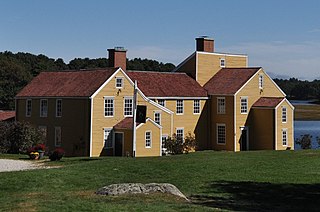
Wentworth–Coolidge Mansion is a 40-room clapboard house which was built as the home, offices and working farm of colonial Governor Benning Wentworth of New Hampshire. It is located on the water at 375 Little Harbor Road, about two miles southeast of the center of Portsmouth. It is one of the few royal governors' residences to survive almost unchanged. The site is a New Hampshire state park, declared a National Historic Landmark in 1968. Today, the New Hampshire Bureau of Historic Sites manages the site with the assistance of the Wentworth-Coolidge Commission, a group of volunteer civic and business leaders appointed by the Governor.
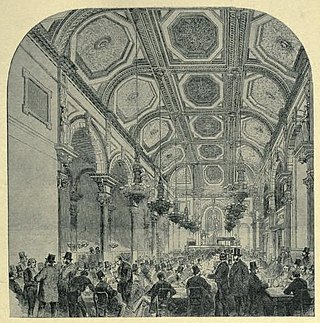
Evans Music-and-Supper Rooms was an entertainment venue for music and singing in the early nineteenth century, located at 43 King Street, Covent Garden, London. The venue provided the type of entertainment which later evolved into music hall. What would later be known as the Evans Music and Supper Rooms was initially known as the Thomas Archer House. The house was built by Thomas Archer in 1712 for Admiral Edward Russell, the fourth Earl of Bedford's grandson. The House would later be sold to a man named Joy and turned into The Grand Hotel. Formerly the dining room of the Grand Hotel, a 'song and supper' room was established in the 1840s by W. H. Evans. It was also known as Evans Late Joy's, the venue previously being owned by a man named Joy. In 1842 the rooms were taken over by John Paddy Green, who had been one of Evans's entertainers. Green reconstructed the rooms and maintained their popular reputation. The room was 113 feet (34.4 m) long by 56 feet (17.1 m) wide.
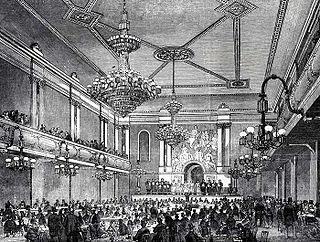
The Canterbury Music Hall was established in 1852 by Charles Morton on the site of a former skittle alley adjacent to the Canterbury Tavern at 143 Westminster Bridge Road, Lambeth. It was one of the first purpose-built music halls in London, and "probably the largest and grandest concert-room ever attached to a public house" in London. Morton came to be dubbed the Father of the Halls as hundreds of imitators were built within the next several years. The theatre was rebuilt three times, and the last theatre on the site was destroyed by bombing in 1942.
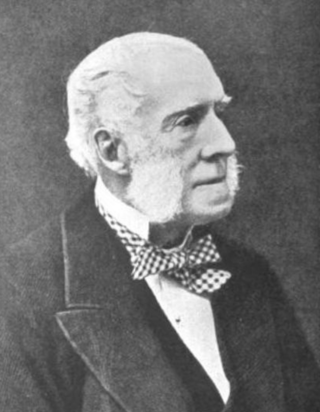
Charles Morton was a music hall and theatre manager. Born in Hackney, east London, he built the first purpose-built Tavern Music hall, the Canterbury Music Hall, and became known as the Father of the Halls.

Kirkston is a heritage-listed villa at 23 Rupert Street, Windsor, City of Brisbane, Queensland, Australia. It was designed by George Henry Male Addison and built from 1888 to 1889 by John William Young. It was added to the Queensland Heritage Register on 21 October 1992.

A night-cellar is a cellar which is open for business at night, typically providing food, drink and entertainment. There were many such in London in the 18th century and they were often disreputable.
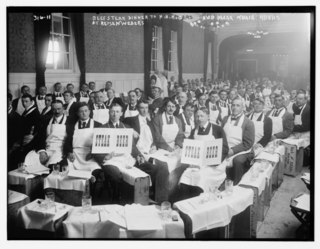
Reisenweber's Cafe, also known as Reisenweber's Restaurant or simply Reisenweber's, was a restaurant, nightclub, and hotel in Columbus Circle, Manhattan, on the intersection of Eighth Ave and 58th Street, from 1856/7 to 1922.

Thomas Hudson was an English writer and performer of comic songs who was one of the earliest credited songwriters in the music hall tradition.
Edmund William Mackney was an English blackface entertainer in early music halls, described as "The Great Mackney" and "The Negro Delineator".
Louisa Caulfield, known as Mrs Caulfield, was an English music hall singer active in the 1850s and 1860s.
John Labern was an English singer and songwriter whose songs in the 1830s and 1840s were significant in the development of popular music.
J. W. "Jack" Sharp was an English singer and comic entertainer.
Charles Sloman was an English comic entertainer, singer and songwriter, as well as a composer of ballads and sacred music. He was billed as "the only English Improvisatore".
Francis Robert Glindon was a British singer, songwriter, and scene painter.
Harry Sydney was an English music hall singer and songwriter.
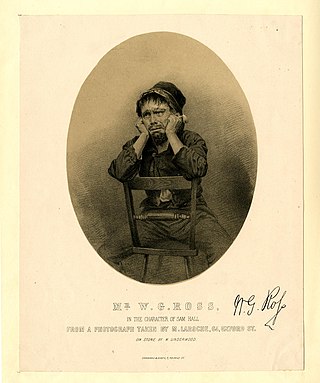
William Gribbon Ross was a Scottish actor and singer who became a popular entertainer in London in the mid-nineteenth century.












